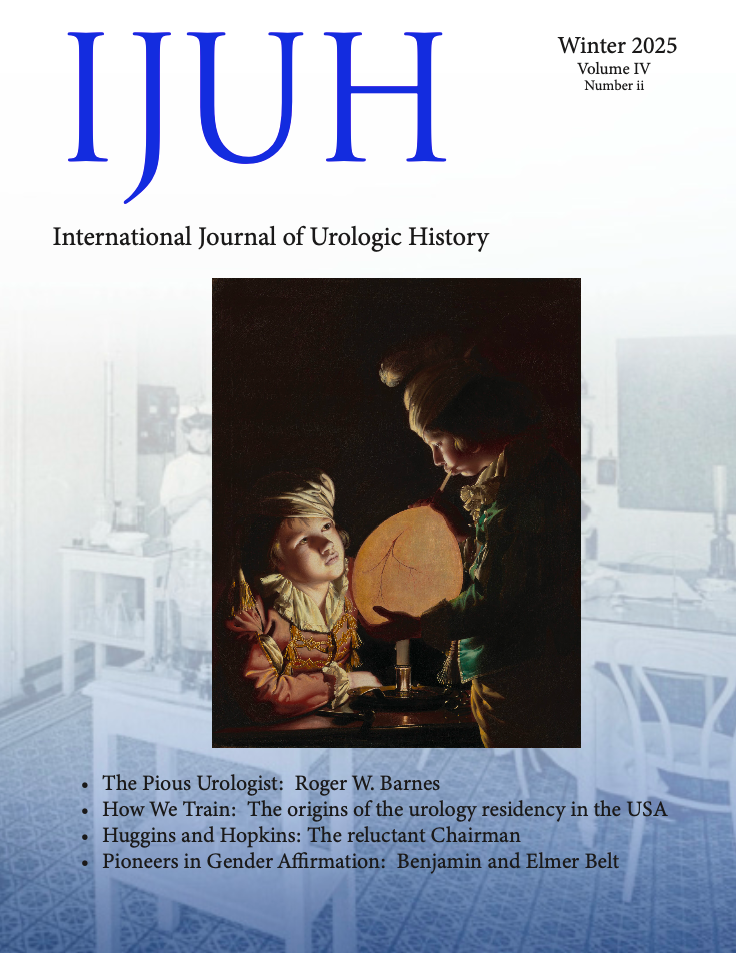Peer Review Policy
Peer Review Process
All manuscripts submitted to IJUH will undergo a double-blind peer review process, where both authors and reviewers remain anonymous. The journal strives to provide a thorough, fair, and timely review.
Reviewers
IJUH asks the first author of a submitted manuscript to recommend two potential reviewers. The author must have no academic or personal affiliation with the potential reviewers and the reviewers must have no direct or potential relationship with the preparation of the submitted manuscript. The reviewer is to be considered an expert in the field as it pertains to the article and has some clinical and historical knowledge of the subject. Where no reviewer can be suggested or appropriate, the editor-in-chief will randomly designate one or, if necessary, two reviewers from the editorial board. Alternatively, expert reviewers may be considered who are not on the editorial board but who fulfill all the necessary requirements and can provide independent, critical feedback as to the suitability of the submission for IJUH.
Reviewer Responsibilities
Reviewers are expected to evaluate the manuscript for scientific and historical validity, originality, clarity, relevance to the journal’s scope, and ethics. Feedback from the reviewer should be constructive, objective, and submitted within the agreed timeline of 2-3 weeks. Feedback should include instructions as to whether the paper is unacceptable for publication, acceptable ‘as is’, or potentially acceptable after ‘minor’ or ‘major’ revision.
Minor versus Major revision
Minor revisions
Minor revisions are requested when the manuscript is generally well-structured, scientifically sound, and meets the journal’s standards but requires small adjustments or improvements. These revisions typically involve clarifications, rewording, formatting changes, or minor adjustments to data presentation. Examples of minor revisions include:
Minor clarifications of methodology or sources of data
Small adjustments to language, grammar, or style
Reformatting tables, figures, or references
Addressing minor reviewer concerns that do not require significant changes to the manuscript's overall content or conclusions
Guidelines for Authors for Minor Revisions: Authors are encouraged to address the requested changes promptly, providing clear explanations for any decisions that deviate from reviewer suggestions.
Decision Outcome: If a manuscript is returned for minor revisions, the author is expected to make changes in a timely manner and resubmit the manuscript. A final decision will be made after the revised manuscript is reviewed.
Major revisions
Major revisions are requested when substantial changes to the manuscript are necessary. These revisions typically involve significant adjustments to the paper’s design, methodology, images and image quality, data analysis, or interpretation. Major revisions are also required if there are issues with key aspects of the manuscript require further development or clarification. Examples of major revisions include:
Absence of permissions to use images
Significant changes or additions to data or analysis
Revisions to the study design or methodology to address critical flaws
Major rewriting of sections to improve scientific rigor or clarity
Addressing fundamental issues raised by reviewers regarding the manuscript's scientific, historical, or ethical aspects
Guidelines for Authors for Major Revisions: Authors are expected to engage deeply with reviewer feedback and make significant improvements to the manuscript. Detailed responses to reviewers should accompany the revised manuscript to outline how each comment was addressed.
Decision Outcome: When major revisions are requested, the manuscript is considered incomplete until the necessary changes are made. Authors are expected to thoroughly revise the manuscript and provide a detailed response to each reviewer comment. After the revised manuscript is submitted, it may be sent back to the original reviewers for further evaluation. It is at the Editor's discretion whether papers have met all necessary revisions in order to proceed to publication in IJUH.
Author Responsibilities
Authors are expected to submit original research, acknowledge all sources of funding, and disclose any conflicts of interest. Any revisions requested by reviewers should be addressed thoroughly and promptly. In historical papers where research subjects are necessary, the author must obtain permission from their local Internal Review Board (IRB), provide the IRB number, and indicate that informed consent process has been used an IRB-approved
Confidentiality
Manuscripts and reviews must remain confidential throughout the review process. Reviewers must not share or use the content of any manuscript for personal or professional gain.
Final Decision Making
Based on reviewer feedback, the editor-in-chief or handling editor will make a decision on whether the manuscript should be accepted, revised, or rejected. Authors will be informed of the decision and provided with feedback from the reviewers.
